Related Research Articles

Lights Out is an American old-time radio program devoted mostly to horror and the supernatural.
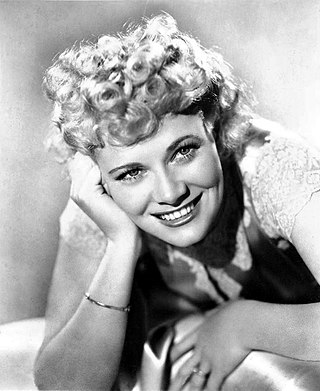
Penny Singleton was an American actress and labor leader. During her six decade career on stage, screen, radio and television, Singleton appeared as the comic-strip heroine Blondie Bumstead in a series of 28 motion pictures from 1938 until 1950 and the popular Blondie radio program from 1939 until 1950. Singleton also provided the voice of Jane Jetson in the animated series The Jetsons from 1962 to 1963.
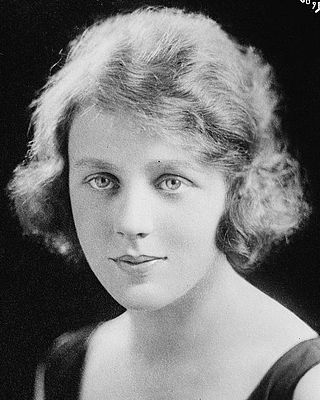
Edna Clara Best was a British actress.

The Aldrich Family, a popular radio teenage situation comedy, was also presented in films, television and comic books. In the radio series' opening exchange, awkward teen Henry's mother called, "Hen-ry-y-y-y! Hen-ry Al-drich!", and he responded with a breaking adolescent voice, "Com-ing, Mother!"

Mr. District Attorney is a radio crime drama produced by Samuel Bischoff that aired on NBC and ABC from April 3, 1939 to June 13, 1952. The series focused on a crusading district attorney initially known only as Mister District Attorney or Chief, and was later translated to television. On television, the attorney's name was Paul Garrett, and the radio version adopted the name in its final years when David Brian played the role. A key figure in the dramas was secretary Edith Miller.
Information Please is an American radio quiz show, created by Dan Golenpaul, which aired on NBC from May 17, 1938, to April 22, 1951. The title was the contemporary phrase used to request from telephone operators what was then called "information" and later called "directory assistance".

Stoopnagle and Budd were a popular radio comedy team of the 1930s, who are sometimes cited as forerunners of the Bob and Ray style of radio comedy. Along with Raymond Knight, they were radio's first satirists.

The Fleischmann's Yeast Hour was a pioneering musical variety radio program broadcast on NBC from 1929 to 1936, when it became The Royal Gelatin Hour, continuing until 1939. This program was sponsored by Fleischmann’s Yeast, a popular brand of yeast.

The Chase and Sanborn Hour is the umbrella title for a series of American comedy and variety radio shows sponsored by Standard Brands' Chase and Sanborn Coffee, usually airing Sundays on NBC from 8 p.m. to 9 p.m. during the years 1929 to 1948.

Backstage Wife is an American soap opera radio program that details the travails of Mary Noble, a girl from a small town in Iowa who came to New York seeking her future.

Nan Grey was an American film actress.
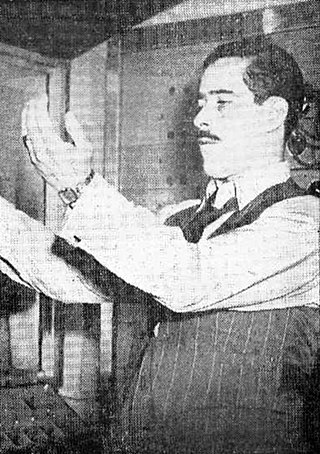
William N. Robson was an American director and producer of radio programs.
The Campbell Playhouse was an American anthology series and television drama that originally aired on NBC from June 6, 1952 to May 28, 1954.

For the television series of the same name, see The Silver Theatre.
Avalon Time is an American old-time radio comedy/variety program that ran from 1938 to 1940 on NBC's Red Network. The program was named after its sponsor, Avalon cigarettes. Over the course of its run, Avalon Time was also sponsored by Sir Walter Raleigh Pipe Tobacco and the Bulova Watch Company.

Barbara Weeks was an American actress and voice talent in the Golden Age of Radio. She was best known for her work in soap operas.

Joan Edwards was an American film actress and singer-songwriter in the old-time radio era. She was perhaps best known for her work on the radio version of Your Hit Parade. She also was a vocalist for Paul Whiteman and his Orchestra.
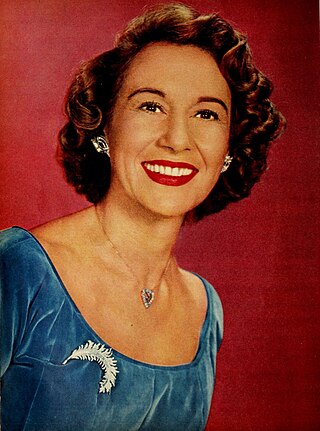
Blind Date is an old-time radio program in the United States. It was broadcast on NBC from July 8, 1943 until January 18, 1946.
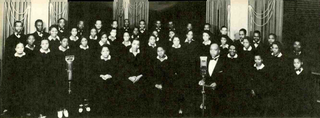
The Wings Over Jordan Choir was an African-American a cappella spiritual choir founded and based in Cleveland, Ohio. The choir was part of the weekly religious radio series, Wings Over Jordan, created to showcase the group.

Ethel Barrymore Colt was an American actress and producer and a soprano who sang in more than 100 concerts in the United States, Canada, and South America. She was a member of the ninth generation of the Barrymore acting family. Her obituary in The Washington Post described her as "a versatile and talented singer, actress and producer, playing dramatic roles on Broadway and in summer stock and singing in grand opera, operetta, musical comedy and on the concert stage."
References
- 1 2 3 4 5 6 7 8 9 10 11 12 13 14 15 16 17 18 19 20 21 22 23 24 Dunning, John (1998). On the Air: The Encyclopedia of Old-Time Radio (Revised ed.). Oxford University Press. pp. 669–670. ISBN 978-0-19-507678-3 . Retrieved January 18, 2025.
- ↑ Guest, Edgar A. Jr. (December 19, 1937). "Dial Dope". Detroit Free Press. p. 8. Retrieved December 2, 2022– via Newspapers.com.
- 1 2 Siegel, Norman (February 1, 1938). "And That's How Radio Programs Are Born! You'll Learn From This". Chillicothe Gazette. NEA. p. 5. Retrieved December 3, 2022– via Newspapers.com.
- ↑ Canfield, Homer (January 4, 1938). "Radiologic". Monrovia News-Post. p. 5. Retrieved December 3, 2022– via Newspapers.com.
- 1 2 3 4 5 6 "The Radio Playbill: This Week --Those We Love" (PDF). Radio Guide. February 18, 1939. p. 6. Retrieved December 2, 2022.
- ↑ "Two Shows Replace Vallee". The Kansas City Star. October 1, 1939. p. 4 D. Retrieved December 3, 2022– via Newspapers.com.
- ↑ "Mr. Fairfax Replies" (PDF). Radio Guide. March 11, 1939. p. 40. Retrieved December 2, 2022.
- ↑ Little, Mary (January 11, 1938). "Behind the Airwaves". The Des Moines Register. p. 4. Retrieved December 2, 2022– via Newspapers.com.
- 1 2 3 4 "Over the Networks". Bradford Evening Star and Daily Record. October 12, 1939. p. 11. Retrieved December 3, 2022– via Newspapers.com.
- ↑ "Will Re-Shuffle Radio Stations". The Wichita Eagle. March 23, 1941. p. 30. Retrieved November 19, 2023.
- ↑ "'Those We Love' Cast & Crew". OTRRpedia. Retrieved November 19, 2023.
- 1 2 3 "'Those We Love' -- People vs. Sponsors" (PDF). Tune In. May 1943. pp. 21–22. Retrieved December 2, 2022.
- ↑ Lackman, Ron (1970). Remember Radio (PDF). G. P. Putnam's Sons. p. 39.
- ↑ "New Shows Pep-Up Summer Radio" (PDF). Radio News Tower. July 1, 1942. p. 1. Retrieved December 2, 2022.
- 1 2 "'Those We Love'". Variety. January 12, 1938. p. 34. Retrieved December 2, 2022.